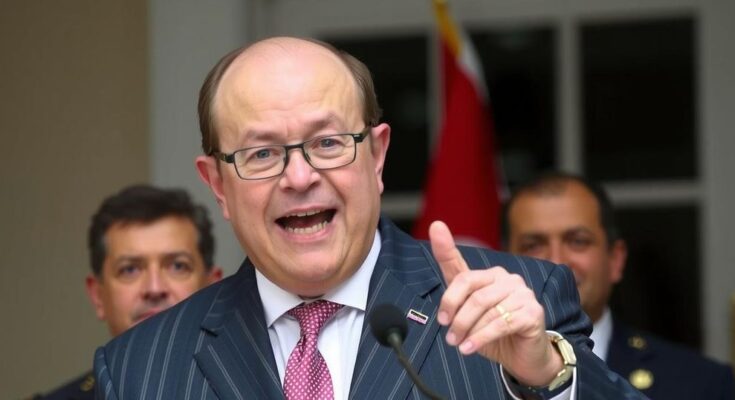Lebanon elected Army Chief Joseph Aoun as president after a two-year vacancy, aiming to address the country’s financial crisis. Aoun emphasized a new phase for Lebanon, focusing on reforms and security in southern Lebanon. His election received significant parliamentary support amidst concerns of regional stability and international cooperation.
On Thursday, Lebanon’s lawmakers elected Army Chief Joseph Aoun as president, concluding a two-year vacancy in the position and marking a significant step towards addressing the nation’s dire financial crisis. Aoun, who donned formal attire instead of his military uniform, was met with applause as he entered the parliament to take his oath. He emphasized the beginning of a new chapter in Lebanon’s history and underscored the need for a ceasefire in southern Lebanon while committing to establishing a government capable of implementing essential reforms to appease international creditors.
Aoun pledged to ensure that the state alone holds the monopoly on arms and announced plans to initiate discussions on a comprehensive defense strategy aimed at countering the Israeli occupation. This sentiment resonated with his supporters, who celebrated his victory in his hometown of Aishiyeh. His election received overwhelming support from 99 out of 128 lawmakers, marking him as Lebanon’s fifth military commander to assume the presidency.
The Lebanese presidency is traditionally held by a Maronite Christian, and Aoun’s ascent fills a critical leadership gap after the tenure of former President Michel Aoun ended in October 2022. Despite facing challenges from Hezbollah and its allies, Aoun’s election is viewed as pivotal in restarting discussions for a new prime minister and possible stabilization of Lebanon’s economy. Support from foreign nations, including the United States and Iran, indicates international interest in Aoun’s potential for fostering unity and reform in Lebanon.
The election of Joseph Aoun, the Army Chief, as Lebanon’s president marks a crucial turning point for a country grappling with severe economic turmoil and a significant political void since the departure of Michel Aoun in October 2022. The Lebanese government operates under a complex power-sharing system where the presidency must be held by a Maronite Christian, which typically results in military leaders stepping into the role, reflecting Lebanon’s historical preference for stability following civil unrest. The challenges ahead include negotiating a ceasefire with groups like Hezbollah, navigating pressures from international creditors, and addressing longstanding political divisions that have paralyzed government functions.
In conclusion, Joseph Aoun’s election as Lebanon’s president heralds a potentially transformative period for the country as it seeks recovery from economic despair and political stagnation. His administration faces immediate challenges, including establishing a new cabinet and addressing the security situation in southern Lebanon. The international community’s reaction and support will be pivotal in determining the success of Aoun’s efforts to unite the country and implement necessary reforms.
Original Source: www.bryantimes.com




